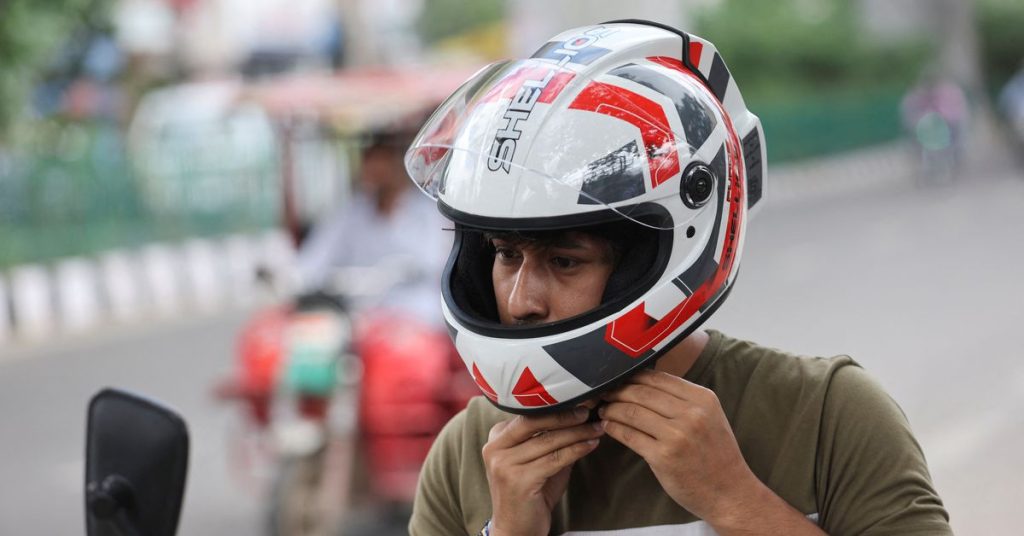
NEW DELHI (Reuters) – As India’s capital, New Delhi, prepares for winter and the smog season that accompanies it, the government is touting a motorcycle helmet with filters and a fan in the rear that it says can remove 80%. of pollutants.
State agencies have poured thousands of dollars into Shellios Technolabs, a startup whose founder Amit Pathak began work on the helmet, which he calls the world’s first, in a basement in 2016.
This was the year in which the first headlines were made about the dirty air making New Delhi nearly unbreathable from mid-December to February, as intense cold traps dust, vehicular emissions and smoke from burning crop waste in neighboring states.
Register now to get free unlimited access to Reuters.com
“Inside a home or office, you could have an air purifier,” said Pathak, an electrical engineer. “But guys on the bike, they have absolutely no protection.”
So his company designed a helmet with an air purification unit, fitted with a replaceable filter membrane and a fan powered by a six-hour battery that can be charged through a microUSB slot.
Pathak added that sales of the helmet began in 2019, and tests conducted by an independent laboratory on the streets of New Delhi confirmed that it could keep more than 80% of pollutants out of users’ noses.
A 2019 test report seen by Reuters showed helmet reduced levels of airborne PM 2.5 particles harmful to the lung to 8.1 micrograms per cubic meter from 43.1 micrograms outdoors.
An employee of Shellios Technolabs, which makes a motorcycle helmet that allegedly has filters and a fan in the back of the helmet, wears the helmet, near an assembly plant unit in an industrial estate, in New Delhi, India, August 23, 2022. REUTERS / Anshree Fadnavis
India’s Ministry of Science and Technology says the helmet provides “a breath of fresh air for motorcyclists”. It may not come so soon in a country that was home to 35 of the 50 worst countries in the world polluted cities last year.
Pathak sees a huge opportunity amid annual demand for 30 million helmets, but declined to reveal his production or sales figures.
Each helmet retails for 4,500 rupees ($56), or nearly four times the cost of a regular helmet, putting the device out of reach for many riders in India.
Because it weighs 1.5 kg (3.3 lb) heavier than current devices, Shellios has tied up with a large manufacturer to develop a lighter version of a thermoplastic material instead of fiberglass, a move that would also lower cost.
The new version is expected to be released in a few months.
Pathak said the company has attracted interest from Southeast Asian countries such as Malaysia, Thailand and Vietnam.
(1 dollar = 79.8210 rupees)
Register now to get free unlimited access to Reuters.com
(Report of Krishna N. Das); Additional reporting by Anushri Fadnavis and Sunil Kataria. Editing by Clarence Fernandez
Our criteria: Thomson Reuters Trust Principles.




More Stories
JPMorgan expects the Fed to cut its benchmark interest rate by 100 basis points this year
Shares of AI chip giant Nvidia fall despite record $30 billion in sales
Nasdaq falls as investors await Nvidia earnings